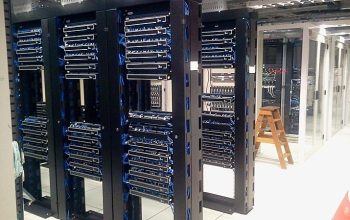The idea of “smart cities” has surfaced as a way to improve urban life by integrating technology and data-driven tactics as cities expand and change. Navi Mumbai uses data analytics to organize, administer, and improve several facets of urban life. The city is intended to be contemporary and efficient. Taking a course in data analytics or data analyst course may provide professionals the tools they need to support the growth of smart cities like Navi Mumbai. In order to ensure sustainable growth and an enhanced standard of living for its citizens, this article examines how data analytics may be used to support the design and management of smart cities.
The Concept of a Smart City
What is a Smart City?
A smart city uses digital technology and data analytics to enhance the quality of life, economic development, and sustainability. This involves integrating information and communication technology (ICT) with the city’s infrastructure and services to make them more efficient and responsive to residents’ needs.
Key Features of a Smart City:
- Managing resources like water, power, and transportation as efficiently as possible is known as efficient resource management.
- Enhanced Public Services: Improving services like healthcare, education, and public safety.
- Sustainable Development: Promoting eco-friendly practices and reducing the environmental footprint.
- Data-Driven Decision Making: Making operational and policy choices with the use of data analytics.
The Role of Data Analytics in Smart City Planning
Data Collection and Integration
Data analytics begins with the collection and integration of data from various sources. In a smart city like Navi Mumbai, data is collected from sensors, IoT devices, social media, public records, and more. This data is then integrated into a centralized system where it can be analyzed.
Sources of Data:
- Sensors and IoT Devices: Collect real-time data on traffic, air quality, water levels, and more.
- Social Media: Provides insights into public sentiment and behavior.
- Public Records: Includes data from government services, health records, and educational institutions.
- Utility Data: Information on energy and water consumption.
Infrastructure Management
One of the critical applications of data analytics in a smart city is infrastructure management. Data analytics helps in monitoring and managing the city’s infrastructure, including roads, bridges, water supply, and sewage systems. By analyzing data from various sensors, city planners can detect issues early and plan maintenance activities proactively.
Applications in Infrastructure Management:
- Predictive Maintenance: Identifying potential infrastructure failures before they occur.
- Resource Allocation: Optimizing the allocation of resources for maintenance and repairs.
- Traffic Management: Using data to optimize traffic flow and reduce congestion.
Optimizing Public Transportation
Any smart city must have public transit. Through the analysis of data on commuter patterns, traffic conditions, and use trends, data analytics helps to optimize Navi Mumbai’s public transit systems. This makes it possible to establish effective timetables and routes, which enhances the commuting experience in general.
Key Benefits:
- Reduced Congestion: Analyzing traffic data to minimize bottlenecks.
- Improved Efficiency: Ensuring timely arrivals and departures.
- Enhanced Commuter Experience: Providing real-time updates to commuters about delays and alternative routes.
Enhancing Public Services
Healthcare Services
In a smart city, data analytics is crucial to improving healthcare services. City planners and healthcare practitioners may more efficiently distribute resources, anticipate epidemics, and spot patterns by studying health data.
Healthcare Applications:
- Disease Surveillance: Monitoring and predicting disease outbreaks.
- Resource Management: Ensuring the availability of medical supplies and personnel.
- Patient Care: Personalizing healthcare services based on patient data.
Education and Learning
Data analytics is used in the field of education to enhance learning outcomes and the quality of instruction. City planners may execute focused initiatives and discover areas for improvement by examining data from educational institutions and schools.
Education Applications:
- Student Performance Analysis: Identifying students who need additional support.
- Resource Allocation: Optimizing the distribution of educational resources.
- Curriculum Development: Tailoring educational programs based on data insights.
Promoting Sustainable Development
Environmental Monitoring
Sustainability is a cornerstone of smart city planning. Data analytics helps in monitoring environmental factors such as air quality, water levels, and waste management. This enables city planners to implement eco-friendly practices and policies.
Environmental Applications:
- Air Quality Monitoring: Tracking pollution levels and implementing corrective measures.
- Water Management: Ensuring efficient use and distribution of water resources.
- Waste Management: Optimizing waste collection and recycling processes.
Energy Management
Energy management is another critical area where data analytics makes a significant impact. By analyzing data on energy consumption, city planners can promote energy efficiency and reduce the city’s carbon footprint.
Energy Management Applications:
- Smart Grids: Using data to manage electricity distribution efficiently.
- Energy Consumption Analysis: Identifying patterns and promoting energy-saving practices.
- Renewable Energy Integration: Facilitating the use of renewable energy sources.
The Path to Becoming a Data Analyst in Smart City Planning
Enrolling in a Data Analyst Course
A solid foundation in data analytics is necessary to support the growth of smart cities such as Navi Mumbai. Enrolling in a data analyst course equips students with the abilities and know-how needed to efficiently analyze data and extract insightful conclusions.
Benefits of a Data Analyst Course:
- Comprehensive Curriculum: Covers all essential aspects of data analytics, including statistical analysis, data visualization, and machine learning.
- Practical Experience: Hands-on projects and case studies to apply theoretical knowledge.
- Industry-Relevant Skills: Training in tools and techniques used by professionals in the field.
- Certification: Formal recognition of acquired skills and knowledge.
Choosing a Data Analytics Course in Mumbai
Mumbai offers a variety of data analytics courses from top-tier institutions, providing students with the opportunity to learn from experienced professionals and gain industry exposure.
Top Data Analytics Courses in Mumbai:
- Certificate in Data Analytics by IIT Bombay: A comprehensive program covering data analysis, machine learning, and data visualization.
- Data Analytics Certification by NMIMS: Focuses on statistical analysis, data mining, and predictive modeling.
- SP Jain School of Global Management: provides a certificate program in big data and analytics with a focus on practical applications.
- Diploma in Data Science and Analytics by University of Mumbai: Covers data collection, cleaning, analysis, and visualization.
- Advanced Diploma in Data Analytics by Xavier Institute of Management and Research (XIMR): Includes modules on machine learning, big data technologies, and business analytics.
Gaining Practical Experience
Practical experience is crucial for applying data analytics skills in real-world scenarios. Internships, hands-on projects, and practical assignments provide valuable opportunities to work with actual datasets and develop problem-solving skills.
Ways to Gain Practical Experience:
- Internships: Working with smart city projects to gain industry experience.
- Projects: Participating in or leading data analytics projects related to urban planning.
- Competitions: Joining data analytics competitions like Kaggle.
- Freelancing: Taking on freelance data analytics projects.
Conclusion
Data analytics is a vital tool in planning and managing smart cities like Navi Mumbai. By leveraging data-driven insights, city planners can enhance public transportation, optimize infrastructure, improve public services, and promote sustainable development. Enrolling in a data analyst course or a Data Analytics Course in Mumbai provides the essential skills and knowledge needed to contribute to this transformative field.Data analysts’ role in influencing the future of urban life will grow in significance as smart cities continue to develop.
Business Name: ExcelR- Data Science, Data Analytics, Business Analyst Course Training Mumbai
Address: Unit no. 302, 03rd Floor, Ashok Premises, Old Nagardas Rd, Nicolas Wadi Rd, Mogra Village, Gundavali Gaothan, Andheri E, Mumbai, Maharashtra 400069, Phone: 09108238354, Email: enquiry@excelr.com.





